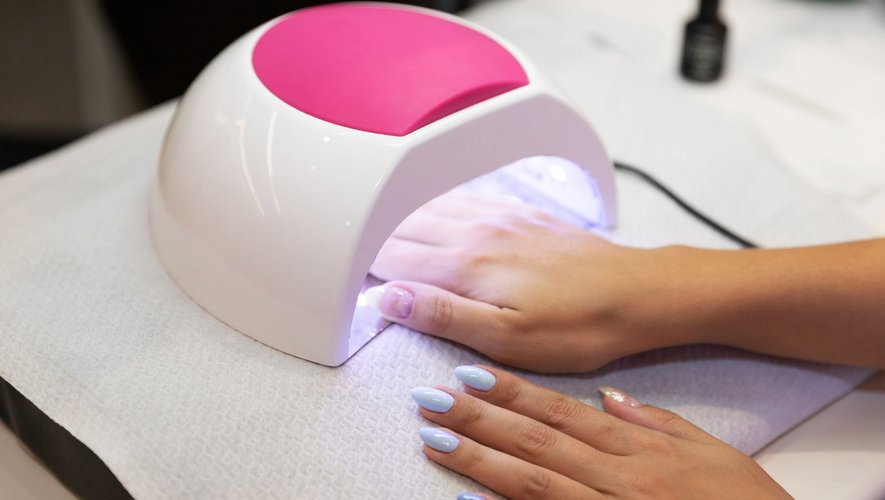The lamps used to dry nail polish emit UVA rays classified as carcinogenic while the nail industry is booming with the proliferation of nail bars. The frequent and repeated exposure of often young people worries the National Academy of Medicine.
The nail salon is a booming sector which represents 15% of the beauty market and attracts all age groups, from 17 to 90 years old. A remarkable boom which is not without risk. The Academy of Medicine warns in a recent statement about the use of ultraviolet lamps to dry semi-permanent nail polish.
Much more resistant than a normal varnish, the semi-permanent varnish promises an outfit of 2 to 3 weeks. However, its application requires the use of a lamp combining type A ultraviolet rays (UVA) – at least 48 watts – and light-emitting diode (LED). This device makes it possible to dry and fix each of the layers of varnish applied.
These lamps can be found in the many specialized institutes and nail bars that have opened their doors throughout France in recent years. But also at home, while merchant sites have multiplied.
UVA, a proven carcinogen
The problem ? UVA rays are classified as a group 1 carcinogen – also called known carcinogens or definite human carcinogens – by the International Agency for Research on Cancer (IARC). In addition to premature aging of the skin, they promote the risk of skin cancer. “UVA rays are known to damage the DNA of skin cells by producing free radicals, which induce the appearance of cancer-causing mutations in these cells,” recalls the Academy of Medicine.
Thus for the year 2022, three types of side effects induced by semi-permanent varnishes have been identified, all in women: 66 cases of allergic skin reactions, 23 cases of mechanical damage to the nails and 3 cases of skin cancer. induced squamous cell carcinoma.
Typical UVA mutations with lamps
With the rise of semi-permanent nail polish, the Academy of Medicine identifies three associated risk factors: the young age of people at the start of using the lamps – 20 years on average – the close frequency of exposure to UVA rays – 5 to 6 times a year – repeated exposure over several years. The risks may be increased especially if the person has fair skin or is immunocompromised.
To support their point, the academics cite a 2022 study that involved exposing three types of skin cells to a UVA lamp: mouse embryonic fibroblasts, human fibroblasts and keratinocytes. “This study demonstrates that the irradiation of the three types of cells by a UV ‘nail’ lamp induces mutations typical of UVA rays. It provides concrete evidence on the carcinogenic risk of the use of these lamps in nail care”, details the communicated.
For a more detailed knowledge of the risks
To reduce the risks, the Academy of Medicine recommends applying sunscreen, with UVA protection, about 20 minutes before exposure to the rays. It also asks the public authorities for “a census of the number of UV/LED devices sold each year, in order to be able to estimate the evolution of the market”.
The institution also calls for each lamp purchased to be accompanied by a written warning message and recommendations and for information campaigns aimed at the general public and professionals in the sector. Finally, it calls for epidemiological studies in order to precisely assess the risk of skin carcinoma induced by the frequent repetition of this type of irradiation over a long period.

